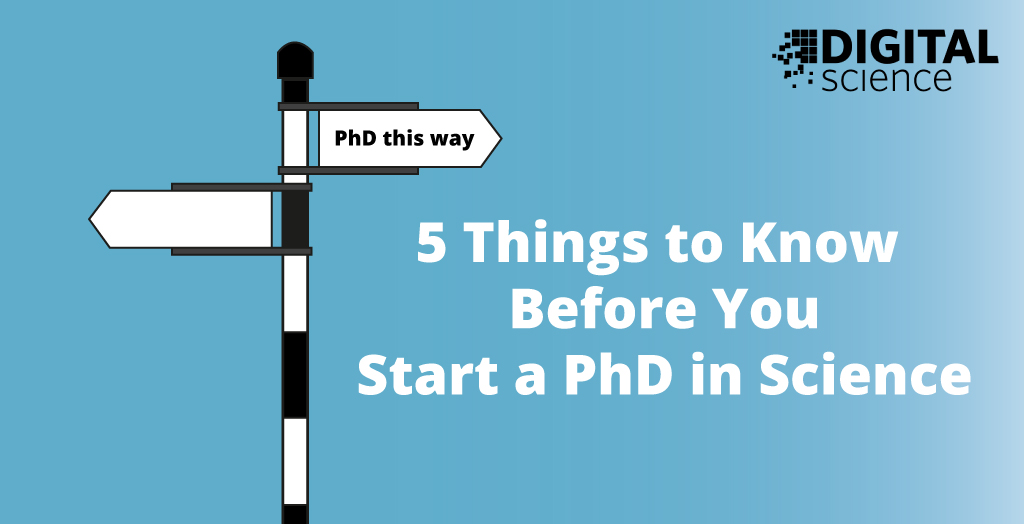Subscribe to our newsletter
5 Things to Know Before You Start a PhD in Science #PhDtips
These days, PhDs are highly sought after. Floods of BSc and MSc students graduate each year hoping to pursue a career in research. The application process can be extremely intense, involving tailored personal statements, project proposals, and meetings with potential supervisors. Once all this is done, you’ve passed the interview, and you’ve been accepted, the hard part is over, right? Time to make some scientific discoveries! Wrong. Starting a PhD is overwhelming, and over the years, you will learn a lot. But before you start, here are a few things that will be useful to know and will also help you to mentally prepare for the journey…
- Independence is key
Probably the most important thing to know before starting a PhD is that the majority of your work is completely independent. Although you do have a supervisor to consult, and sometimes a research group, you are the only one researching your specific project. You are expected to organise your own time, solve problems, teach yourself protocols, and deliver results. Working through a PhD requires lots of initiative and self-motivation, so make sure you’re geared up for this before you start.
- Resilience is a requirement
Before I started, a final year PhD student told me that resilience was ultra-important. He was not wrong. It’s rare in scientific research that things work correctly the first time, especially when you are responsible for creating and optimising your own protocols. Experiments and equipment can fail all the time. Calculations and dilutions can be wrong. Samples can get contaminated; the list goes on. Sometimes weeks and months can go by without generating any useful data, but this is normal. The level of resilience and patience required to complete a PhD should not be underestimated, and you’ll quickly learn how to bounce back from almost anything.
- You will never know everything
The famous quote from Albert Einstein ‘the more I learn, the more I realise how much I don’t know’ really just sums up a PhD (especially the first year). No matter how much you prepare, someone will always find that niche piece of information you don’t know, or that paper you didn’t manage to read, and ask you about it at a lab meeting or conference. However, don’t let this get you down. No one can know everything. Even the most experienced scientists don’t know everything about their field.
- For every problem solved, two more manifest
This is why research is both fascinating and frustrating. Be prepared to question everything when you get positive data. It’s not good enough to show one thing, you need to complete the story, and show that you are aware of every possible ‘Why?’ question.
- Perfection is unfortunately unachievable
The earlier you realise this, the better. The meticulous student that you (probably) are, means that you want the smallest error bars, or the most aesthetic western blots. But this doesn’t always happen in research, and you have to be realistic about your time. Obviously, it’s great to strive for the highest quality research output, but don’t agonise and waste time over achieving perfection, because sometimes, no matter how many times you do that western blot, it will be blurry.
 Nicola is a third year PhD student at the University of Westminster, investigating the underlying genetics of breast cancer. She holds an MSc in Biomedical Sciences and during her undergraduate degree, she also gained clinical experience as a Biomedical Scientist. As well as completing her doctoral study, Nicola is a science writer and blogger. You can follow her on twitter at @fresh_science.
Nicola is a third year PhD student at the University of Westminster, investigating the underlying genetics of breast cancer. She holds an MSc in Biomedical Sciences and during her undergraduate degree, she also gained clinical experience as a Biomedical Scientist. As well as completing her doctoral study, Nicola is a science writer and blogger. You can follow her on twitter at @fresh_science.

